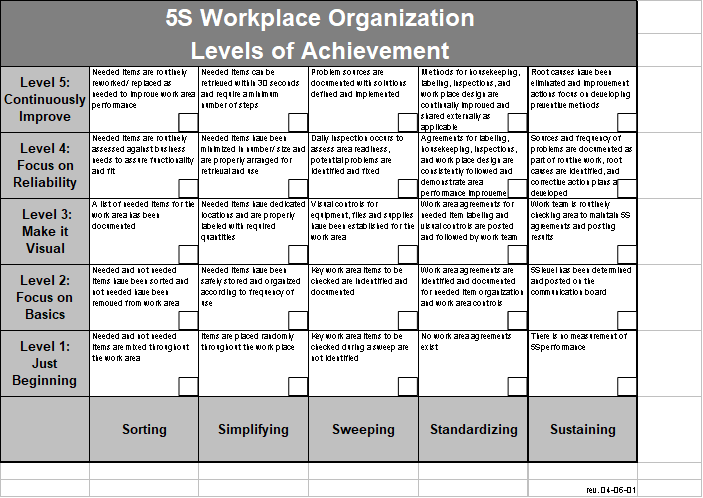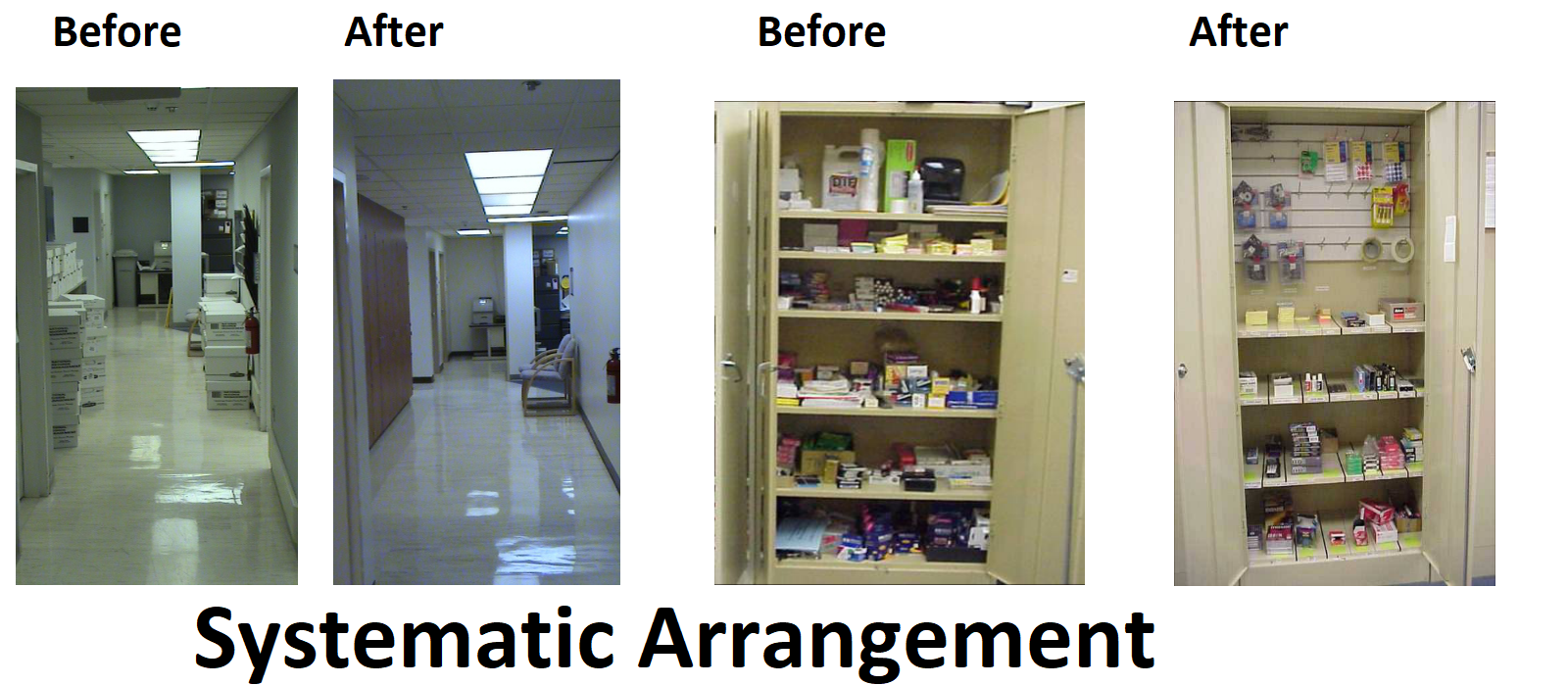
5 S is one of the 30 odd Japnese Management Techniques. Lets see which 5 S are these . 5 S is a structured approach to achieve clean and orderly work
place by fixing place
for everything. 5 S is not limited to manufacturing industries.
Five Ss is an abbreviation for the Japanese words:
Seiri,
Seiton,
Seiso,
Seiketsu and
Shitsuke.
It means:
Seiri- getting rid of unnecessary items
Seiton- Arranging items (materials, tools, gauges)
systematically for easy
retrievability.
Seiso- Keeping work place scrupulously clean.
Seiketsu - Scheduling regular cleaning and clearing out
operations.
Shitsuke - Making all the above task meet agreed standards at
agreed intervals
The English version of 5 S is - Sorting – separating the needed from the not-needed
Simplifying – a place for everything and everything in its place,
clean and ready to use
Systematic Cleaning or Sweeping – cleaning for inspection
Standardizing – developing common methods for consistency
Sustaining – holding the gains and improving
Sorting – separating the needed from the not-needed
Before Sorting -Identify area for tagged/unnecessary items
Provide tags for large not-needed items
Provide boxes for long-term storage
Provide cleaning supplies: brooms, mops, and cleaning
solutions
Assign participants to specific areas
Inform or coordinate with people who may be asked to help
store, repair, or dispose of identified items
Notify others that Five S activity is about to occur
Arrange for dollies, carts, etc., to remove items
Brief the team
Separate Required Items Out - Eliminate unnecessary items and perform an initial cleaning
Establish criteria/handling of items
Identify unnecessary items
Move unnecessary items to holding area
Conduct an initial cleaning
Simplifying – a place for everything and everything in its place,
clean and ready to use
A place for everything and everything in its place, clean and
ready to use - Arrange workplace for safety and efficiency
Identify key equipment and supplies
Determine location for each item
Outline locations and zones
Develop shadow boards, label items
Document layout, equipment, supplies

Systematic Cleaning or Sweeping – cleaning for inspection
Clean for Inspection - Perform daily cleaning and inspection to understand work
conditions
Identify points to check for performance
Determine acceptable performance
Determine visual indicators/controls
Mark equipment/controls
Conduct daily cleaning/inspections
Continue reading to the end to see pictures of how IOA Health
has implemented 5-S practically in their organization.
Standardizing – developing common methods for consistency
Develop Common Methods for Consistency - Make abnormal conditions noticeable and document
agreements
Document agreements and checks- create audit tool
Establish/document standard methods across similar work
areas
Document new standard methods
Sustaining – holding the gains and improving - Hold the Gains and Improve
Maintain the gains from other 5S activities and improve Determine 5S Level of Achievement
Perform routine checks using audit tool
Analyze results of routine checks
Measure progress and plan for continuous improvement
Continue reading to a next page to see pictures of how IOA Health
has implemented 5-S practically in their organization
---> NEXT-----> Advanced 5-S
Source: IOA Health, Quality in Healthcare Further Reading - Applying the Kaizen Method and the 5S Technique in the Activity of Post-Sale Services in the Knowledge-Based Organization By Mihail Aurel Titu; Constantin Oprean and Daniel Grecu ISSN: 2078-0966(online)